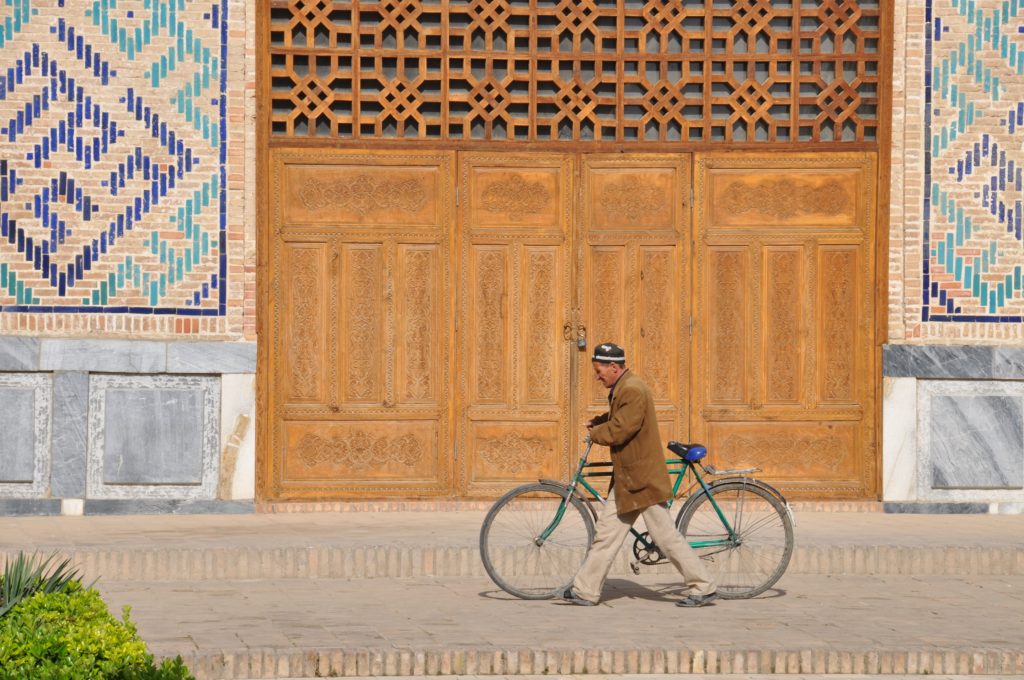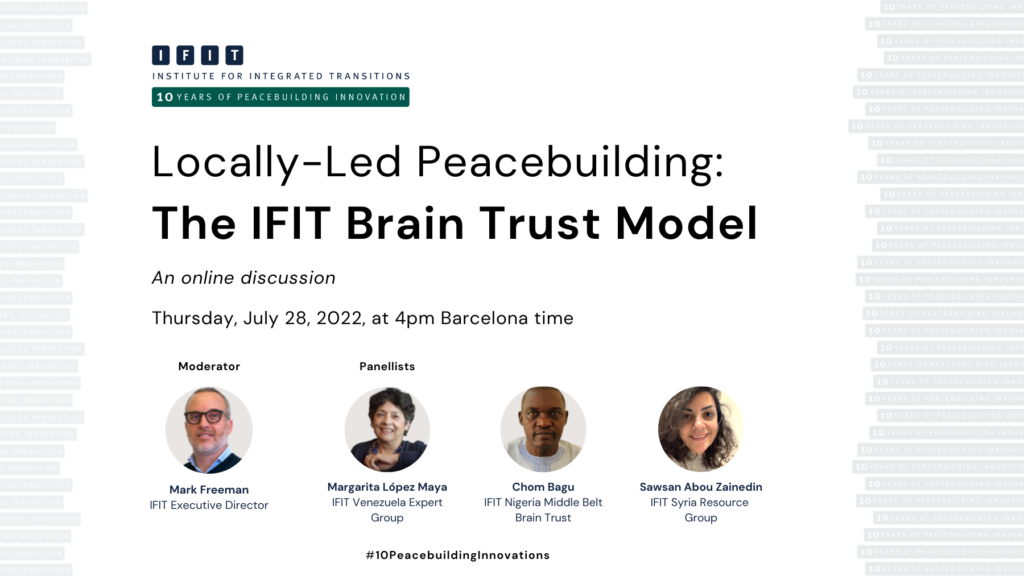Country Brain Trusts
IFIT’s pioneering brain trusts creatively pool and harness the unique strengths of local ‘go-between’ leaders to bridge national and community-level processes of dialogue, peacebuilding and transition.

Typically, an IFIT brain trust consists of a multidisciplinary group of 15-18 social, business and political leaders from the particular country, chosen for their policy expertise, personal integrity, influential local networks, and capacity to connect elites and ordinary citizens. A single brain trust might include, for example, the rector of an important national university, the head of the national business council, the country’s chief religious leader, the director of a top local think tank, and so on. These are the go-between leaders whose role is critical in bridging national and community-level processes of dialogue, peacebuilding or transition.
Once the brain trust is in place, IFIT’s permanent staff and thematic practice groups offer the brain trust customised training and policy support based on a continuously evolving set of priorities tied to an overall strategic aim (such as facilitating a political settlement or ensuring a successful peacebuilding process) that is embedded in a long-term local vision.
In supporting each brain trust’s impact goals, IFIT seeks to:
- Nurture the brain trust as an independent space for local reflection, strategic brainstorming and idea formulation on advancing the particular negotiation, transition or peacebuilding process;
- Ensure the systematic transfer of key concepts, lessons and know-how from other contexts;
- Assist the brain trust to channel its most important ideas to key national and international audiences.
The benefits of an IFIT brain trust vary from one case to the next, but above all they offer a catalytic local platform to:
- Develop creative and realistic strategies that are not narrowly filtered through one ideology or set of interests;
- Bring key local actors together who otherwise would not meet regularly, allowing them to support each other and overcome previously hard-to-solve collective action problems;
- Offer interdisciplinary and real-time analysis and advice to decision makers at critical junctures.
The kind of outcomes achieved by IFIT brain trusts are wide-ranging and include to:
- Shape the content of local/national policies and decisions;
- Create new paradigms to expand the range of perceived solutions;
- Launch formal negotiation or transition mechanisms or processes;
- Strengthen local institutions;
- Foster alliances between divided actors;
- Increase local actors’ knowledge of key international lessons;
- Mould better international understanding of true local realities;
- Generate formal accords (across major groups) in favour of a particular solution or approach.















